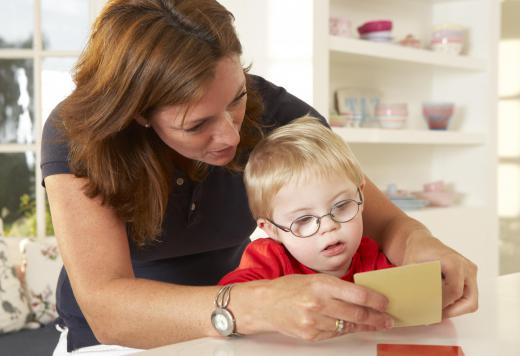At LanguageHumanities, we're committed to delivering accurate, trustworthy information. Our expert-authored content is rigorously fact-checked and sourced from credible authorities. Discover how we uphold the highest standards in providing you with reliable knowledge.
What Is a Speech Error?
A speech error happens when someone says words or sounds that they do not intend to say. Slips of the tongue are common in everyday speech and often follow common patterns in how specific grammatical constructions are manipulated. Common types of slip-ups include malapropisms, a metathesis or an epenthesis. Usually, these are normal, but they can occur more frequently if conditions such as dyslexia or problems with eye movement or muscle control are present.
Human speech has been studied extensively in real-world settings as well as in laboratories. The different parts of speech are more apparent when a speech error occurs and is analyzed. With a malapropism, a word is spoken that is not intended to be said but is usually either similar in meaning to the one the person wanted to say or sounds a lot like it. It is also common for people to switch syllables in words, or to switch words within a specific sentence, which is called a metathesis. An epenthesis refers to when sounds are added to the middle or end of words.

Speech error occurrences can result from differences in the movement between parts of the tongue as well as the rate at which they move together or in relation to one another. Most of the time, vowels will be replaced only with vowels, and the same goes for consonants. Words are most often replaced with others that fit in a similar grammatical context. A strong pattern seen in language pathology is that words and sounds are moved in place of one another and not taken away from an overall phrase.

Muscle movements and reaction times as well as the rate of speaking have a significant influence on each speech error that occurs. Repetition of tongue and lip movements, and those of the jaw, interrelates with the phonological similarities of many sounds and words. Speech errors are not random and have been studied in speech pathology to create various language models.

When people have trouble controlling eye movements, this can affect how they read. Problems with head movement do as well, and these lead to a form of dyslexia that can affect speech. Conditions such as Parkinson’s disease can result in speech pathology issues as well. Learning disabilities and clinical problems with finding words, which can result from injuries, can increase speech error frequency. Slips of the tongue usually are not a sign of an aphasia-related speech disorder; they happen to everyone at some point.
AS FEATURED ON:
AS FEATURED ON:













Discussion Comments
@allenJo - I think anything that is not related to a specific disease like Parkinson’s is correctable through therapy or education. Perhaps Parkinson’s could be corrected to some extent, too, I don’t know. The thing I’ve learned about speech is just that it takes constant practice to get it right.
@hamje32 - A lady at my workplace tends to mispronounce the word “supposedly” a lot. She says “supposably.”
I suppose this would be an example of epenthesis, where words are inserted into a middle of the word, in this case the “b” sound being inserted where the “d” sound should exist.
I couldn’t tell you whether this is a speech pathology issue or one having to do with education. I never bother to correct her because I always think that would be insensitive.
I used to read the humorous use of malapropisms in Shakespeare’s plays and I thought they were hilarious. Similar sounding words were used to great effect by Shakespeare in some of his comedies.
Of course the realization that some people do this in real life, not deliberately, is not funny at all. I used to think it was the result of lack of proper education in phonetic speech but I now realize that there may be clinical issues involved, where some people just have difficulty saying the correct word and so use the nearest substitute instead.
I still believe that these people can be helped with the right therapy however, just not standard teaching on phonetic usage.
Post your comments